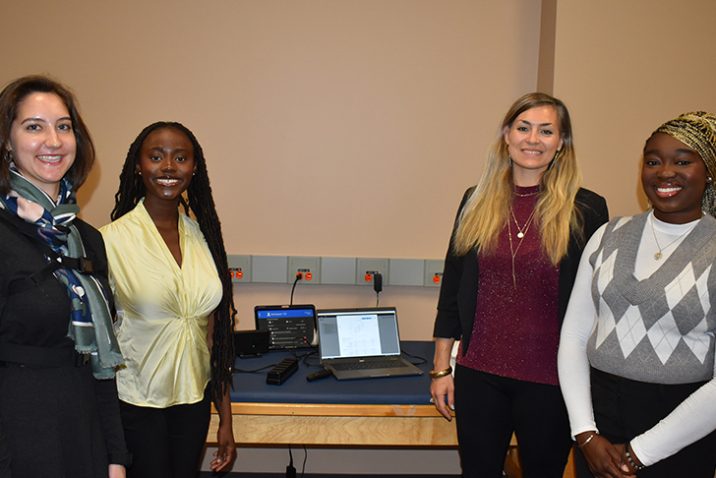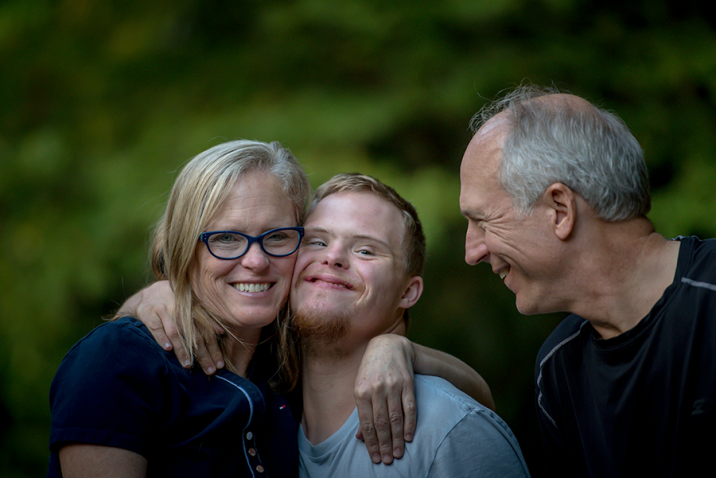AU undergraduate research team selected to participate in national program
“Learning to communicate and advocate for your research effectively is such an important tool as a researcher and can lead to valuable change,” says Quentin Davis, PhD. …
Core Research Themes
Based on comprehensive community health assessments and multiple public health issues associated with health disparities in the Southeastern US, we have identified four core research themes to advance the mission of the new school. These themes will be grounded in biostatistics, bioinformatics, epidemiology, bioethics, health economics, behavioral sciences, and community-based participatory research (CBPR). The Department of Population Health Sciences, Institute of Public and Preventive Health (IPPH) and Georgia Prevention Institute (GPI) provide leadership and scholarship in the advancement of biomedical science and improvement of public health, playing a vital role in multidisciplinary and translational research at Augusta University. Additionally, the Center for Bioethics and Health Policy is well placed to lead and support interdisciplinary engaged research that spans the core themes across the School of Public Health.
Rural health is an often-underserved area of healthcare. Understanding and addressing the unique health needs of people residing in rural America is consistent with the National Institute of Health (NIH)’s commitment to health equity and its focus on social determinants of health (SDOH) to reduce and eliminate health disparities. Digital technology has the potential to play a significant role in improving access to healthcare for rural populations and is a key element in strategies to reach underserved individuals and communities.
Augusta University’s long tradition of involvement in the health of rural Georgia has been accelerated by the COVID 19 pandemic. AU established the Center for Rural Health Study and Support to identify needs and issues facing our rural communities and to find solutions to the challenges of rural health care delivery. During this time, use of tele-medicine has grown exponentially. AU Health’s Virtual Care at Home program provides our patients with individualized care in the setting of their home.
An internationally recognized telemedicine service founded at Augusta University Medical Center known as REACH (Remote Evaluation for Acute IsCHemic Stroke) facilitates neurological consults for patients in rural hospitals that lack emergency neurology coverage. This pioneering telemedicine service lets neurologists at Augusta University Medical Center diagnose and treat stroke patients at participating hospitals from anywhere, at any time, through a standard computer webcam and broadband internet connection. Since its inception in 2003, the network has grown from 2 rural sites to 29 hospitals including rural hospitals and larger partner hospitals throughout the state.
The clinical faculty from the Department of Emergency Medicine has created a Rural Hospital Virtual Care Network encompassing sixteen rural hospitals that can utilize services such as Tele-critical care and Tele-hospitalist. This tele-medicine healthcare ecosystem keeps patients in their community hospitals, increasing the financial viability of rural hospitals, expediting transfer of complex critically ill patients, decreasing cost of healthcare and decreasing healthcare disparities.
The proposed partnership with Wellstar Health System will provide fertile ground for collaborative work through its Global Digital Health and Innovation Center.
Mental health and substance use disorders are interconnected issues that can have significant impact on individuals, families, and communities. Mental illnesses result in poor quality of life, increases healthcare costs, and complicates management of comorbid physical disorders. A public health perspective of mental illness is critical for improving availability, access, and affordability, and improving overall health outcomes for Americans.
At AU, IPPH and GPI are involved heavily in research regarding this subject. Faculty in the Departments of Psychiatry and Psychology are active in public health-oriented research. Additionally, AU has a suicide prevention project, Choose Life. The SOPH can also partner with Charlie Norwood VAMC on these topics.
Preventive and community health programs focus on improving the health and well-being of populations through the promotion of healthy lifestyles, the prevention of diseases and injuries, and the identification and control of health risk factors. Aging increases the risk of chronic complex diseases such as dementias, heart disease, type 2 diabetes, arthritis, and cancer. These are the leading drivers of illness, disability, death, and health care costs in our Southeastern US. Thus, our Preventive and Community Health theme is to characterize and understand environmental, sociocultural, behavioral, and biological factors in the accelerated processes of aging and its related diseases among diverse populations.
At AU, IPPH was established in 2012. Its mission is to improve health, reduce health disparities, and prevent injuries and illnesses through research, service, leadership, and training. The three centers of IPPH – Center of Bioethics and Health Policy, Center of Rural Health, and Area Health Education Centers – form a strong infrastructure to advance community-based research.
GPI is a human research institute primarily funded by National Institutes of Health and American Heart Association, with over a thirty-year of history for interdisciplinary research in chronic diseases, aging, health disparities, and SDOH. GPI faculty follow longitudinal population cohorts throughout the lifespan.
Research efforts of the Georgia Cancer Center (GCC) have centered on cancer prevention, early detection and treatment, measurement of the impact of outreach and screening and elimination of cancer health disparities and inequities. Each member of the Cancer Prevention, Control & Population Health Program reaches out to community organizations, schools and other civic groups to improve health outcomes. One example of a local CBPR approach is the Georgia Cancer Center partnership with Augusta Mayor Hardie Davis. This has led to the development of the Augusta Fit Families program. This program collaborates with the United States Conference of Mayors and the American Beverage Foundation for prevention of childhood obesity.
Emergency preparedness and cybersecurity are interrelated issues that can have significant impact on the safety and well-being of individuals, communities, and organizations. The Office of Critical Event Preparedness and Response (CEPaR) at Augusta University has a history of working collaboratively on numerous initiatives, notably, in response to the COVID pandemic. The School of Computer and Cyber Sciences provides state-of-the-art technology education and research across computer science, information technology, and cybersecurity disciplines. Cybersecurity and safety issues involving mobile technologies are potential areas of research.
From a regional perspective, Augusta is home to Georgia Cyber Center, which is known for collaboration and innovation in cybersecurity challenges. Fort Gordon, GA serves as the U.S. Army’s Cyber Command headquarters.

“Learning to communicate and advocate for your research effectively is such an important tool as a researcher and can lead to valuable change,” says Quentin Davis, PhD. …

Those with IDD have different and varying levels of support needs related to communication, self-care and other life skills across all of their life expectancy. …

"Those experiencing long COVID were more likely to have food security concerns," said Biplab Datta, PhD. …

"As soon as they opened it (Sports Management program) up, that’s what I wanted to pursue,” said Rodrigo Burgos Aliva. …